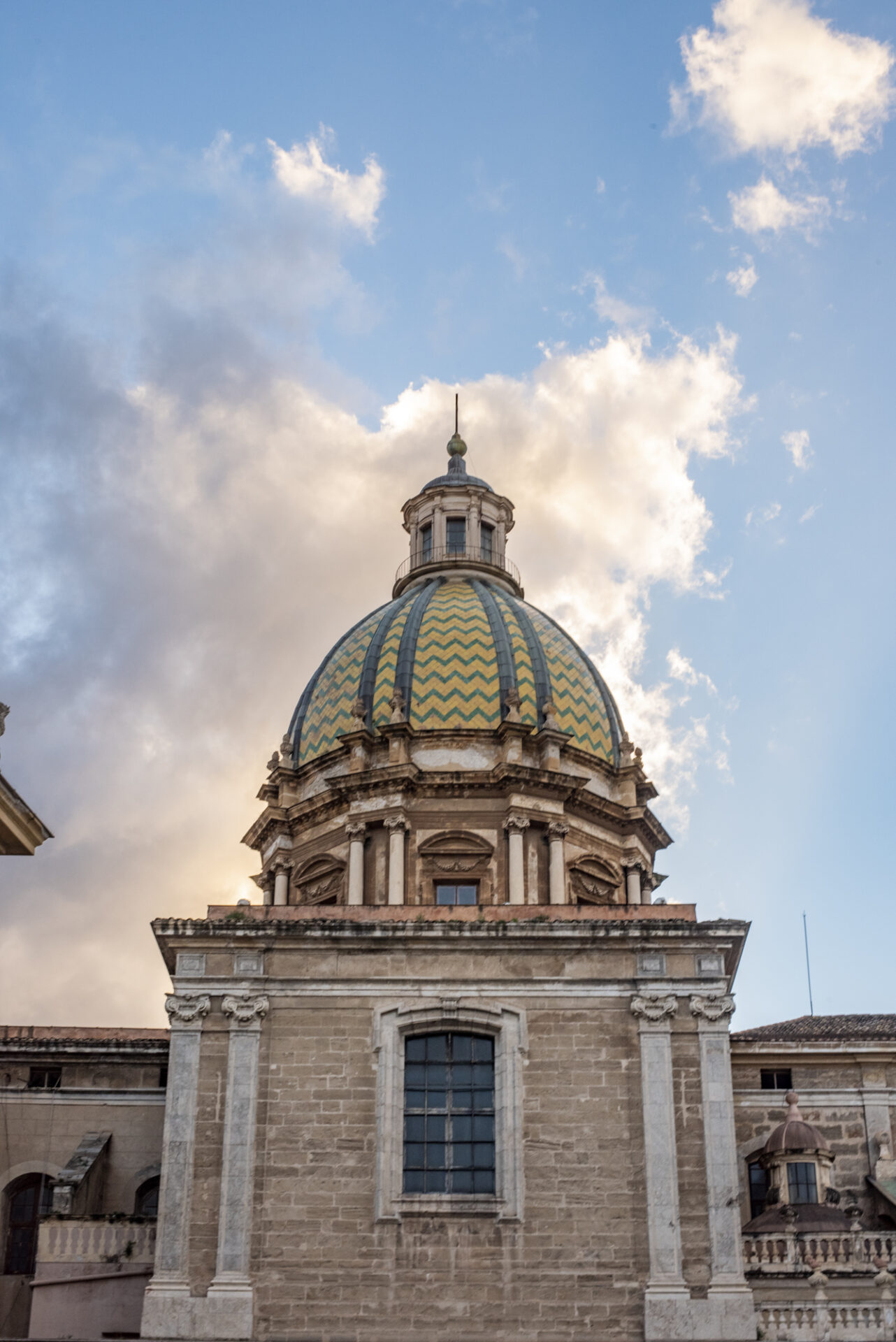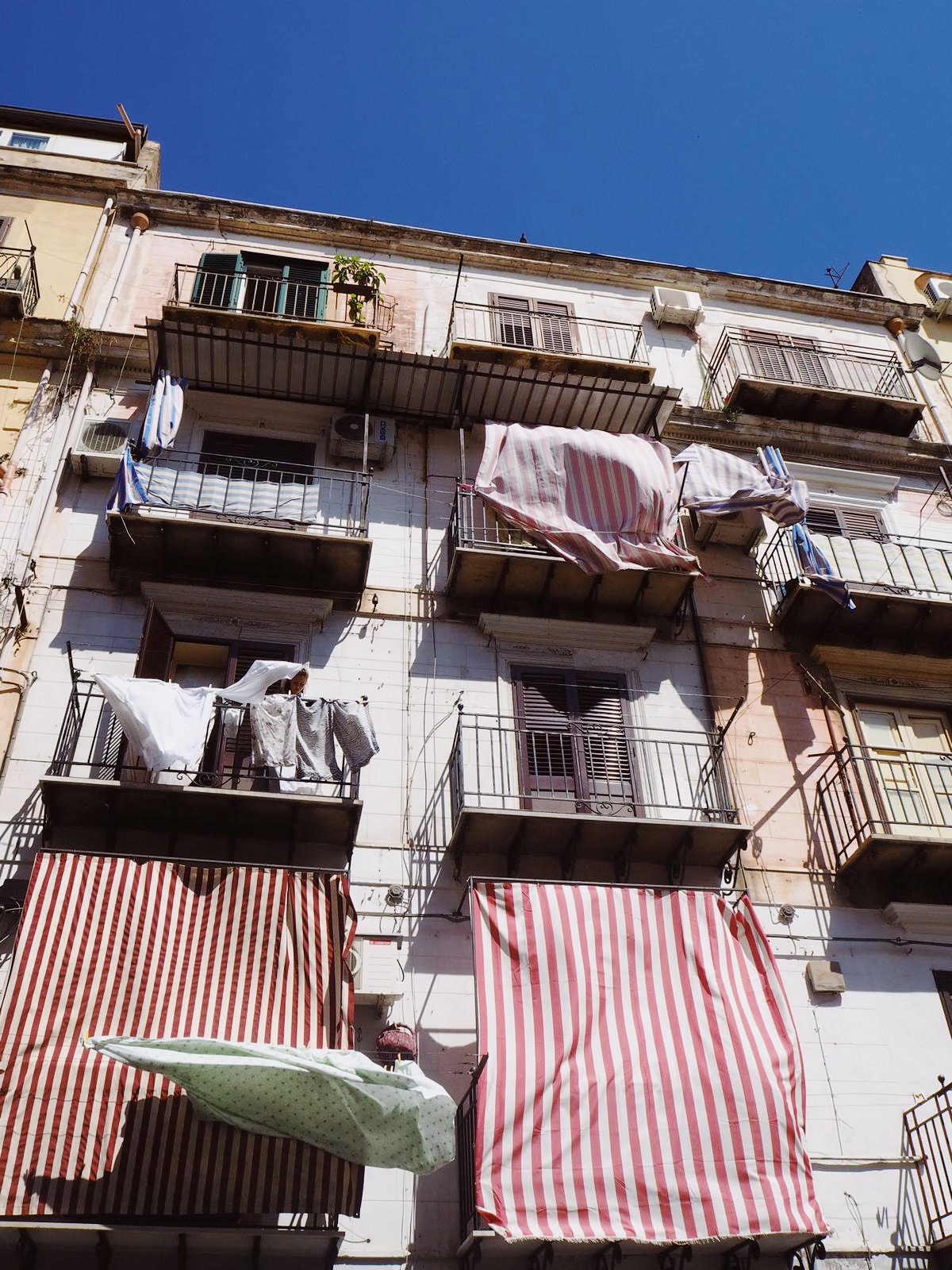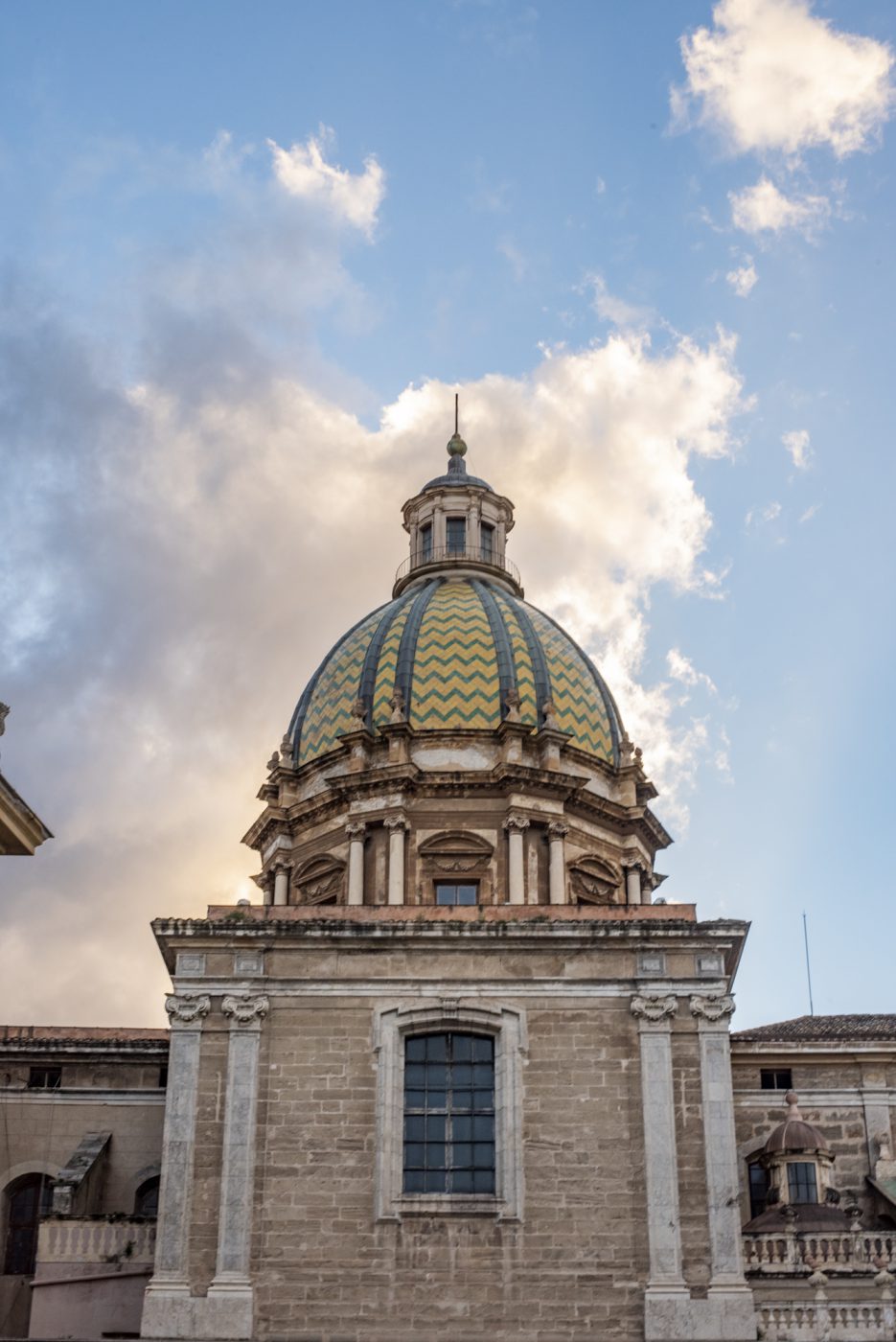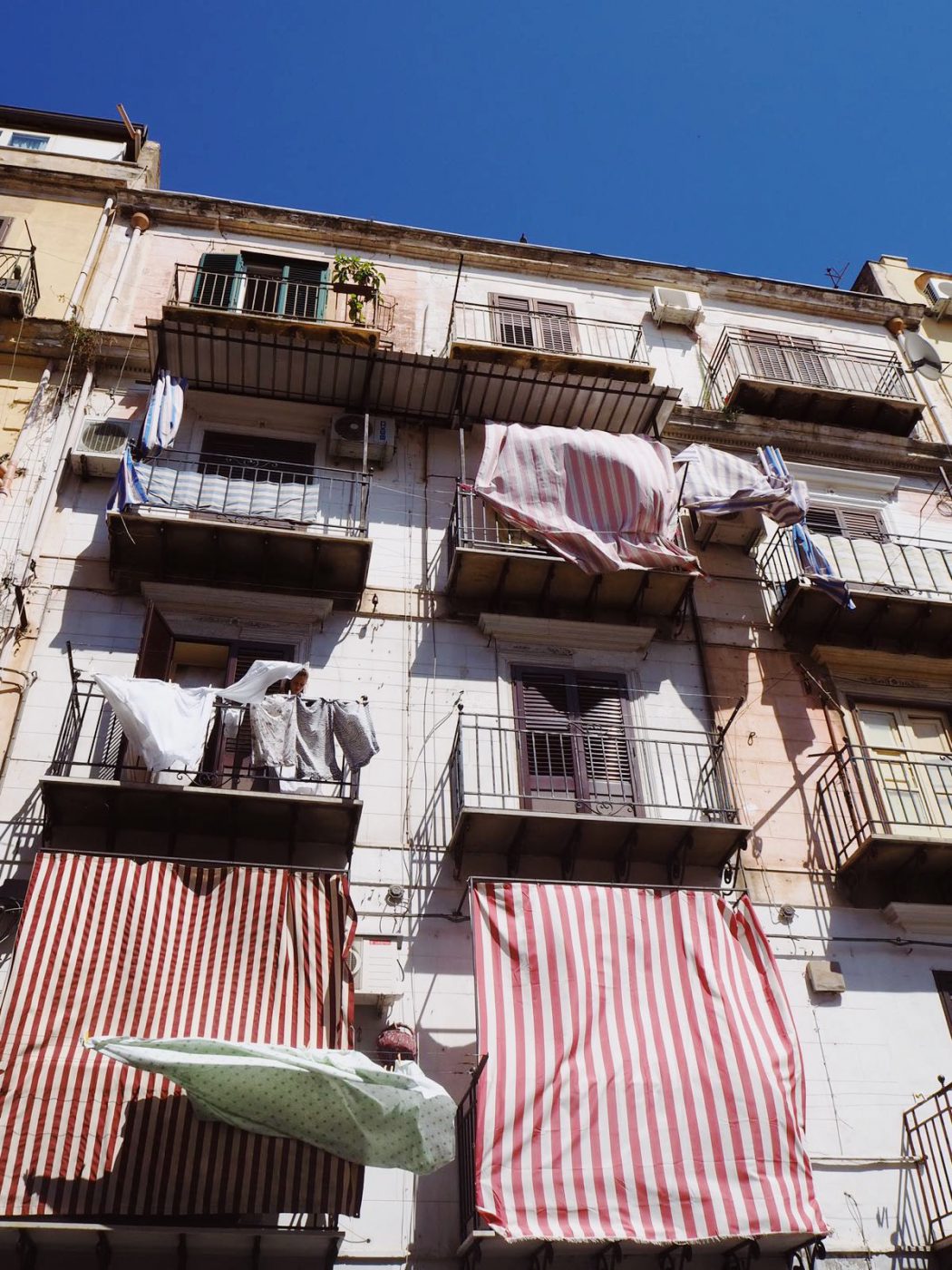I arrived solo. “A one-woman mission to learn Italian.” (The actual reason for my trip had been to continue a love affair with the Brazilian I’d met in Vucciria.) Thankfully, my relationship with the Italian language has lasted longer than the fling for which I decided to move to Palermo.
Tucked in a narrow alley directly across from Teatro Massimo, B&B Del Massimo was my temporary home. Impossibly high ceiling dripping a dramatic chandelier, original tiles and a balcony that hovered over a pulsing street–it was everything I needed in that moment to feel I was in Sicily. I kept the balcony doors open to the noise, determined to live the city even from indoors.
Determined to live like a Palermitan, I’d asked the B&B owner where I should eat lunch: the hot tip was Antica Focacceria del Massimo, a casual bistrot just downstairs that seemed to be the very distillation of Palermo in a restaurant. The Focacceria didn’t so much as beckon as it did intimidate me.
Chaos is an understatement. Crowds spilled out into the street below my balcony–the Sicilian’s answer to an orderly queue–and plates piled with pasta emerged constantly as if off a conveyor belt. Not a word of English could be heard amongst the clientele. This was the real deal.
Elbowing my way in, budging between labourers and law students (of which there are many in Palermo), I took in a counter of contorni–an enormous selection of Sicilian sides that, from what I could see, could be mixed and matched. Slick aubergine caponata, cute involtini di pesce spada (swordfish rolls dipped in breadcrumbs and then fried), fennel and orange salad, butter beans, green beans–every single type of green I could have dreamed of–all laid out in front of me… just beyond a wall of locals.
Each shouted out their order, barely audible over the racket. On the other side of the room, a window looked into a blue-tiled kitchen in which three enormous vats of pasta were being dished out by a man in chef’s whites. I made a beeline for the pasta window and, on arrival, was instructed (the chef using wild hand gesticulations as his language of choice) to cross back to the other side of the room, past packed tables of diners and those hovering around the contorni counter, where a little old lady sat in a corner behind an old fashioned till.
My cheeks were flushed thanks to some combination of the heat and my language disability. The nonna by the till looked over square-rimmed spectacles and immediately knew that I was struggling. The line of people behind me snaked out of the front door, and I felt the person behind me gently shoving their way forward, inching closer and closer, urging my order out of me. The nonna picked up and handed me a laminated, plastic green card with the words: “Pasta, 4 EURO, 5 Contorni, 6 EURO”. My saviour. “Pasta,” I mustered. I was given a card with the number 203 and waved off.
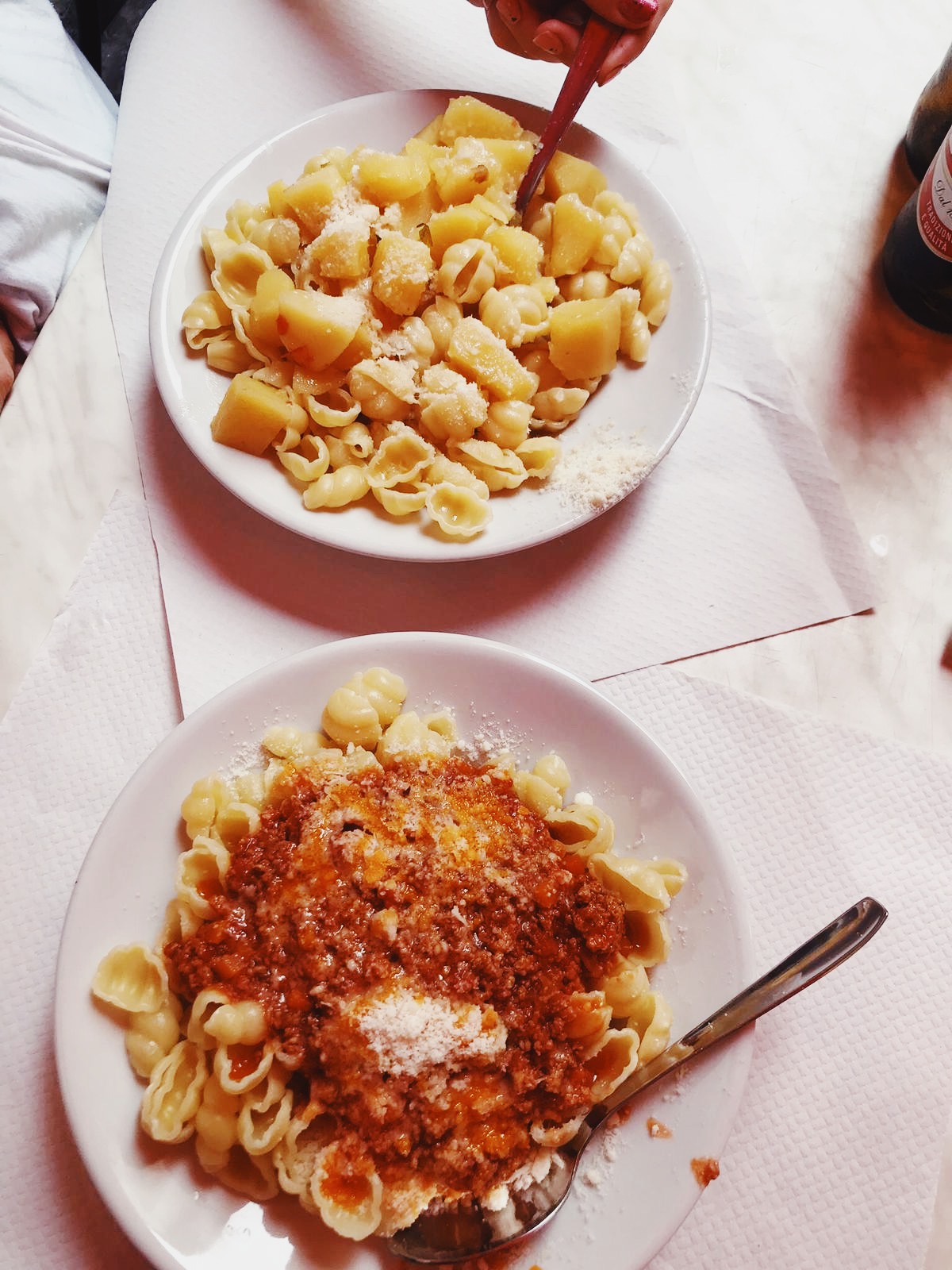
203 was my number in the queue–hence the lax approach to waiting in line. My choices were three: pasta al ragù, pasta e piselli or pasta alla norma. As I watched the heavily-laden bowls pass through the window to eager customers, I could hardly comprehend how something so plentiful could amount to the cost of a single ride on the London underground. I practically squealed when my bowl of pasta and peas landed heavy and hot in my outstretched hands.
Finding a seat to perch on indoors was impossible, despite the big room that backed the main dining space. The only option was to head outside with the workers and tuck into my treasure al fresco. A man with gruff hands, dressed in overalls and heavy workman’s boots, pulled out a chair for me and gestured for me to sit down. My induction into Antica Focacceria del Massimo was complete.
It was here that I dined daily for the entirety of my stay in Palermo, speed walking to make it before the 4 PM close after my Italian lessons at Scuola Italiana Sicilia. If I was lucky, I’d swing a table with enough space to lay out my Italian homework, conjugating verbs between slurping down al dente strands of spaghetti. Or better still, the workmen would chat with me, testing out my progress with the language daily and confusing me with Palermitano dialect that even most Italians can’t grasp.
It’s Antica Focacceria del Massimo that I long for now, when reservations are almost all but required and restaurants are partial to order. If only I’d known then that one day in the not-so-distant future, I’d nostalgize the pressure of a stranger at my back, pushing me forward in a desperate lunch time rush for a plate of pasta.
